Shopify vs. Etsy: A Comprehensive Comparison
Glory-Anna Oshafi
Remember when you had to choose between two excellent options, then became overwhelmed and decided not to go for any? Psychologists call it “Choice Overload.” One of the reasons most business owners face this mental roadblock is that they’re unequipped with enough information to make an informed decision on what’s best for their business. In this article, you’ll find the core details you need to choose between both industry giants, Shopify vs. Etsy.
To decide which is best for your business, consider factors like each platform’s pricing structure, control options, and reach. Fortunately, this guide places these platforms side by side, comparing the relevant details of each to help you make an informed decision.
Let’s start by exploring what each platform offers individually.

Shopify vs. Etsy: Understanding Their Differences
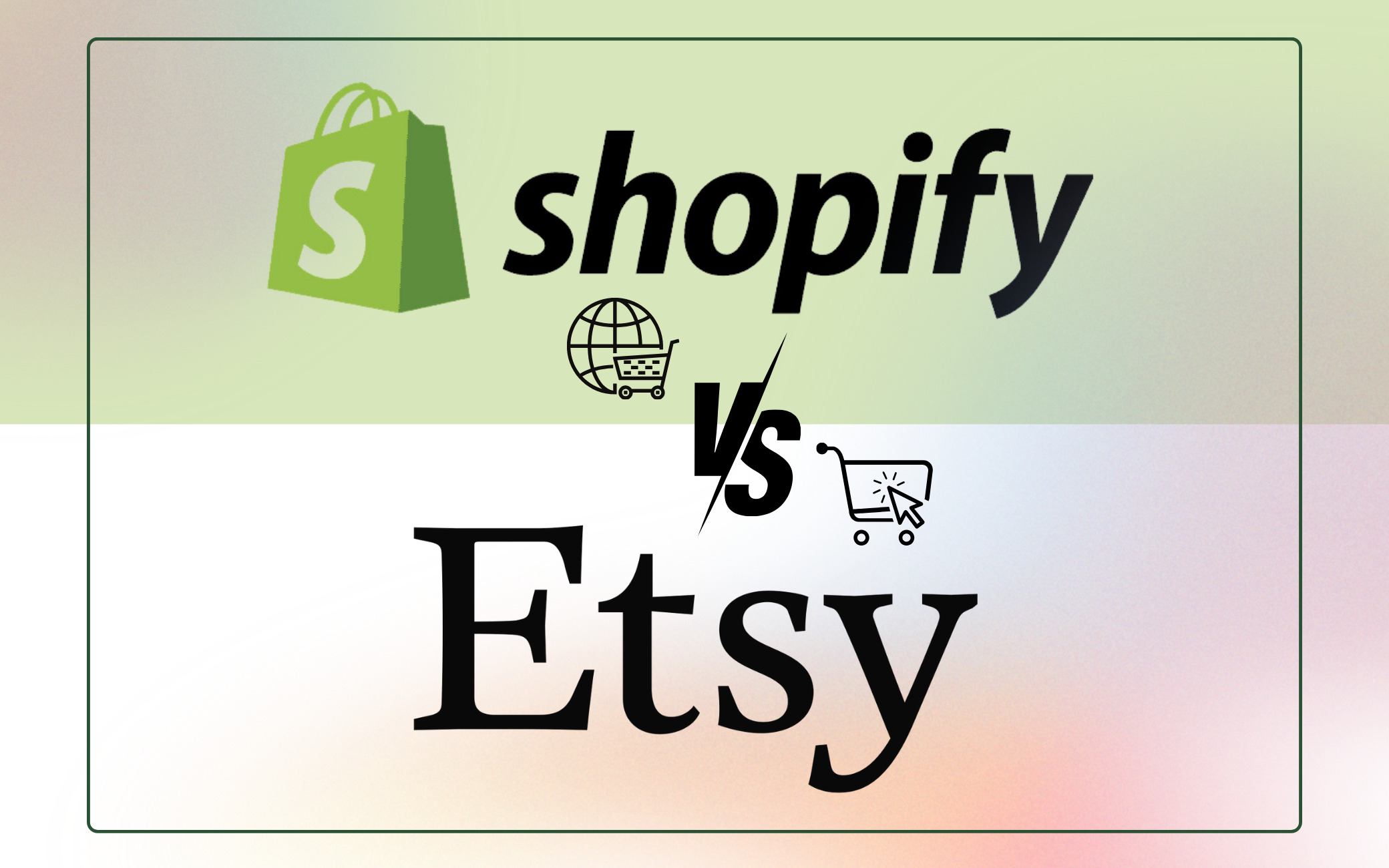
Even though Shopify and Etsy are often compared, they’re fundamentally different in their offerings to e-commerce business owners. Let’s see how each of these platforms works.
Overview of Shopify: Features and Target Audience
Shopify is a comprehensive e-commerce platform that allows users to create and customize their online stores from scratch. It caters to e-commerce businesses of any size, from startups to large enterprises, and you can reach anyone online.
Shopify also provides tools to help users manage inventory, process payments, ship products, and optimize sales. The platform also offers an omnichannel presence for businesses across multiple channels, including brick-and-mortar locations, mobile devices, and pop-up shops.
The Shopify basic package offers the following features:
- Customizable themes (paid and free).
- Trusted checkout optimization
- AI features to perform tasks like creating brand content or automatically replying to customers.
- A custom domain on the Shopify platform.
- A marketplace called the Shop app that gives businesses access to millions of shoppers on the platform
For higher price tiers, you get more features, including 24/7 tech support, an informed audience list for campaigns, collaborations with influencers, and more. Shopify provides all the necessary tools to help you grow as an e-commerce vendor.
Overview of Etsy: Features and Target Audience
Etsy is a specialized marketplace focused on handmade, vintage, and unique goods. It provides a platform for individual artisans, crafters, and small businesses to showcase and sell their products to a global audience.
Unlike Shopify, Etsy sellers do not need to set up standalone websites. Rather, they create listings within the Etsy marketplace, which already has a built-in audience of buyers looking for unique items.
Additionally, Etsy does not offer tools to help business owners handle shipping and inventory management.
Some of the features of Etsy include:
- Communication connection with other artisans on the platform
- Ability to optimize listings for SEO
- Analytics to keep track of orders
Etsy is a platform connecting creators with people who have a few bucks to spend. The platform is available in over 40 countries but is dominated by the U.S. market.
Shopify vs. Etsy: Key Differences
Now, let’s compare Shopify and Etsy with specific features to determine the best for your business.
Control and Customization: Shopify’s Flexibility vs. Etsy’s Marketplace
Shopify offers users a high level of control over their online stores compared to Etsy.
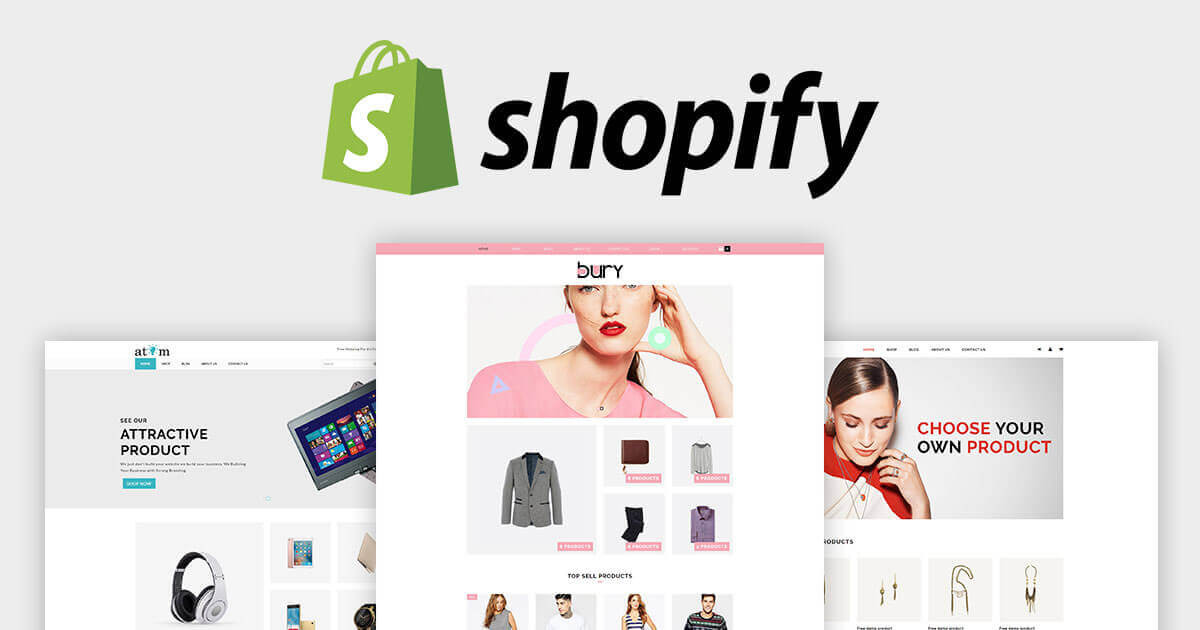
Because Shopify is a website builder, Shopify sellers can get a unique domain name to identify their businesses. A domain name is a unique address used to access websites. It’s something like www.google.com. Now, with this domain name, customers can search specifically for an online business on any browser.
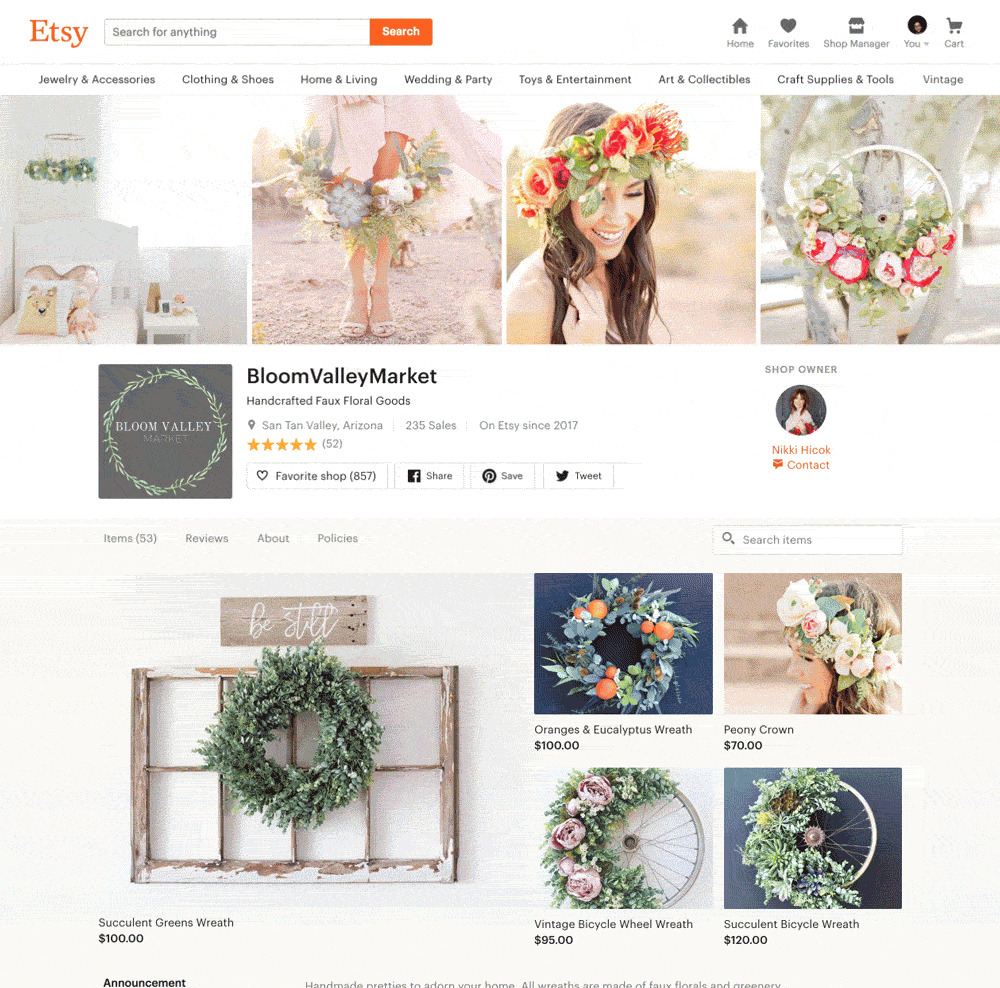
Etsy doesn’t offer website-building functions — it’s only a marketplace. This means you don’t get a domain name as an individual seller. To access your store on Etsy, buyers have to navigate through Etsy’s website.
Shopify also wins in design flexibility with its wide range of themes that you can personalize and edit to align with your brand identity. However, Etsy’s customization options are more limited compared to Shopify. You can add personal touches, such as photos, descriptions, and pricing, to your shop pages and product listings. But you have less flexibility in terms of overall design and layout.
Setting up on both platforms is relatively straightforward. But, setting up on Etsy may seem easier because it simply requires you to list your products within the Etsy marketplace. Creating a website on Shopify might seem more tasking, but the platform offers user-friendly tools and resources to make it a smooth process.
Sales Fees and Pricing Structures
Neither of these platforms is free to operate. However, they offer different pricing structures. Shopify offers various plans for your business as it scales with recurring fees each month alongside transaction fees. These transaction fees may decrease with higher-tier plans to prevent sellers from facing significant costs as their sales volume grows.
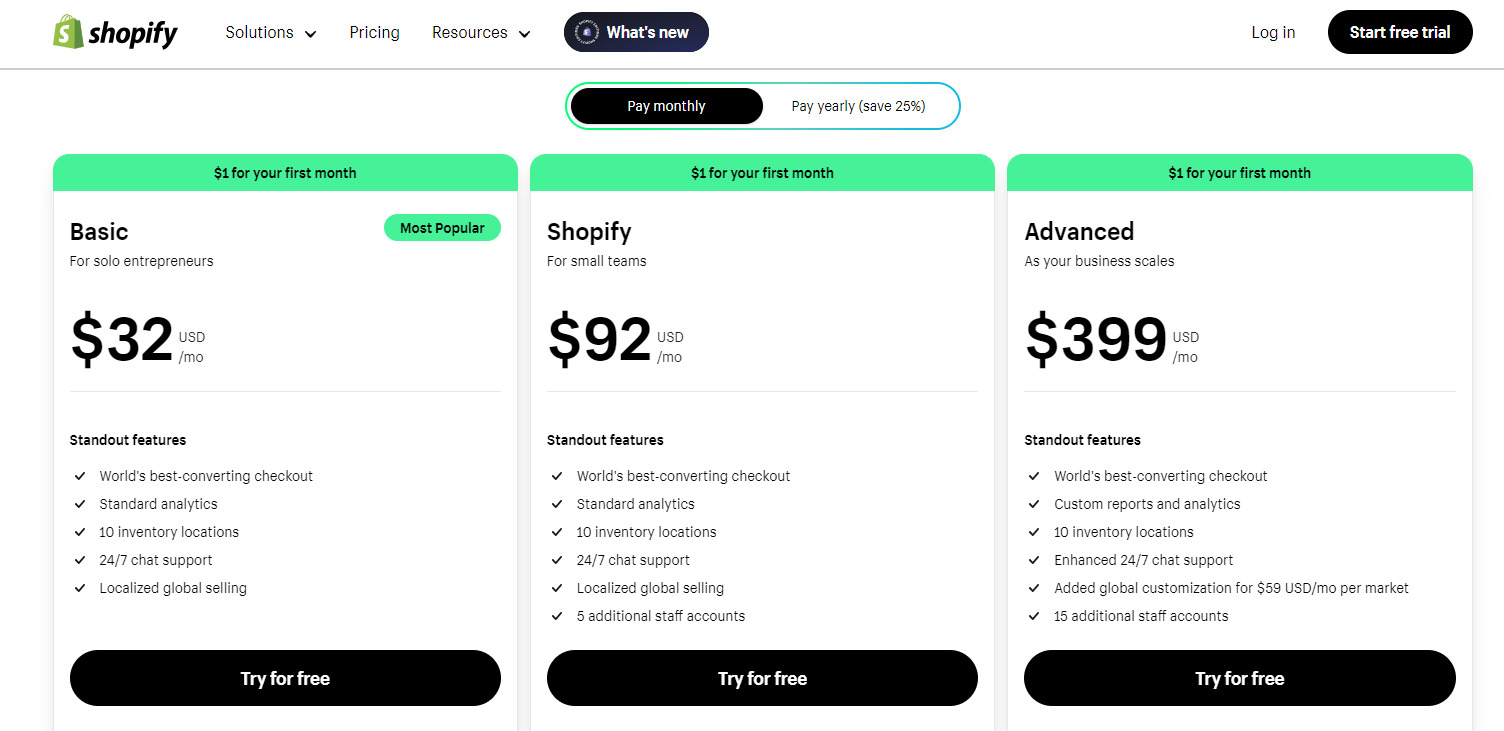
Shopify’s basic plan for solo entrepreneurs costs $32 monthly. Small businesses can subscribe to the $92/month plan. As your business scales, you can get the advanced plan for $399 monthly.
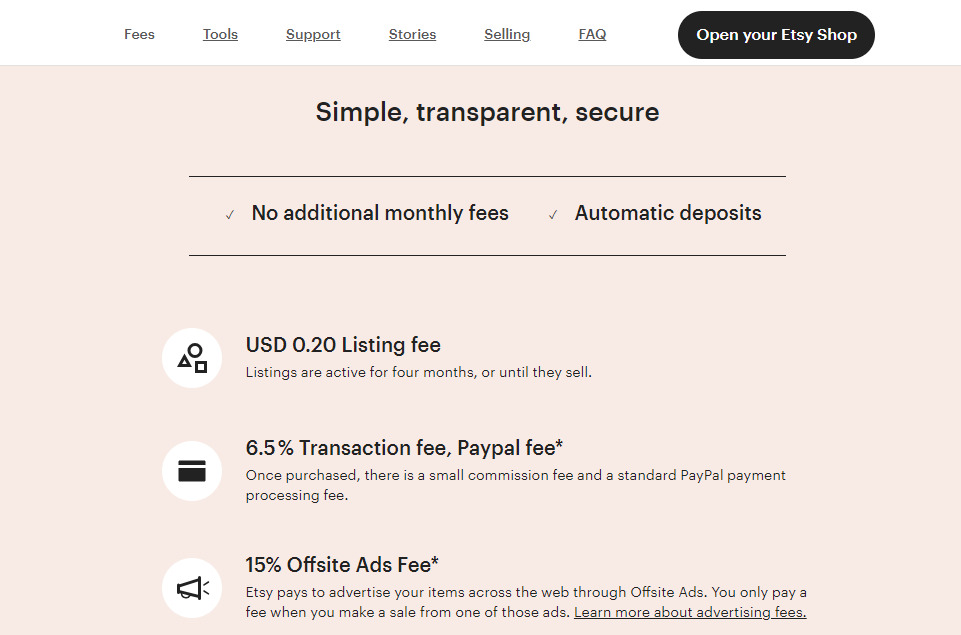
On Etsy, sellers incur costs with each sale, including listing, transaction, and payment processing fees. Etsy charges 6.5% of the overall fee you charge your customers, including shipping and gift wrapping fees if you charge for those.
Alternatively, you can subscribe to Etsy Plus, which provides additional features for a monthly fee of $10. This structure means sellers without Etsy Plus may face varying expenses with each sale. This flexibility can benefit new businesses, as they don’t have to pay a monthly fee when sales are low.
Target Market and Customer Reach
Shopify primarily targets entrepreneurs and businesses looking to establish or expand their online presence. As an e-commerce website builder, Shopify focuses on providing tools and resources to help you create and manage your online stores effectively.
Getting your target audience lies on your shoulders. However, Shopify offers features like Shopify Collab and Shopify Audiences to help you drive traffic to your website.
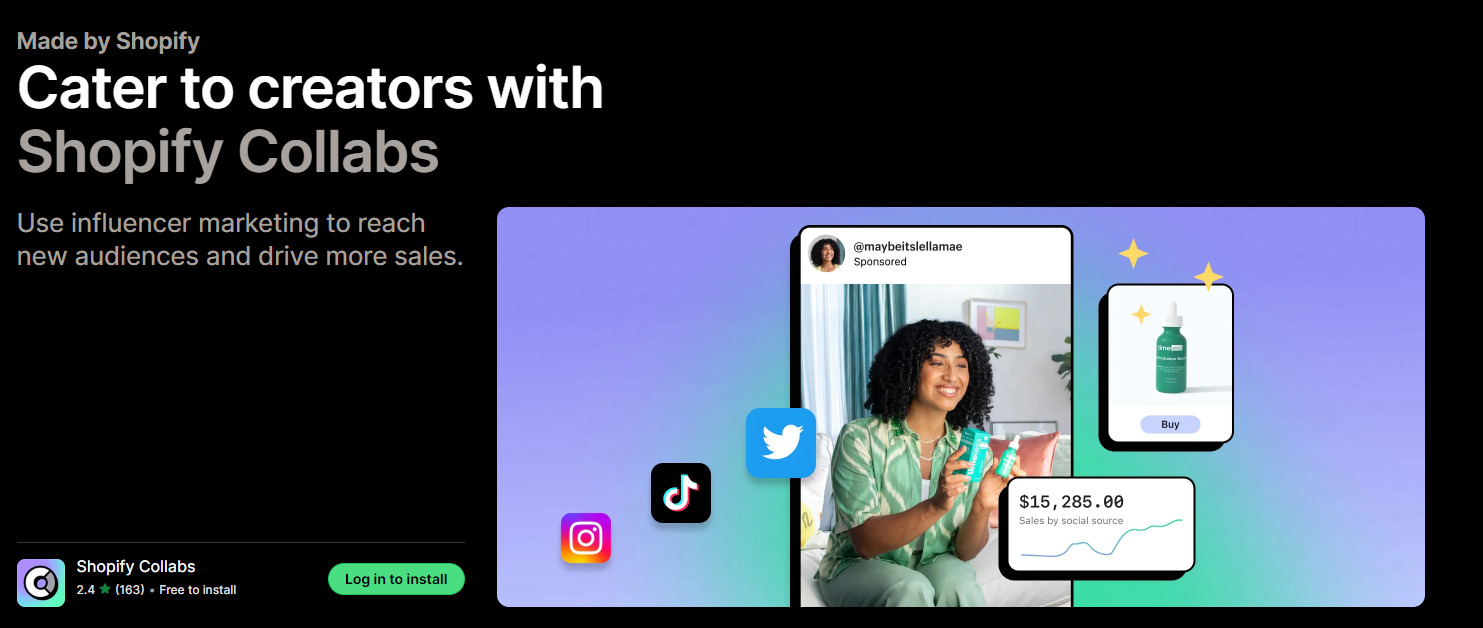
Shopify Collabs connects you with influencers and affiliate marketers to help you reach more people. Shopify Audiences creates audience lists based on customers’ behavior patterns. You can use this audience list to run targeted campaigns on Google, Facebook, Instagram, Snapchat, TikTok, and Criteo.
In comparison with Shopify, Etsy targets both sellers and buyers. As a marketplace, product sellers and buyers keep the trade alive. Currently, there are over 90 million buyers on Etsy. So, you have a large audience to tap into.
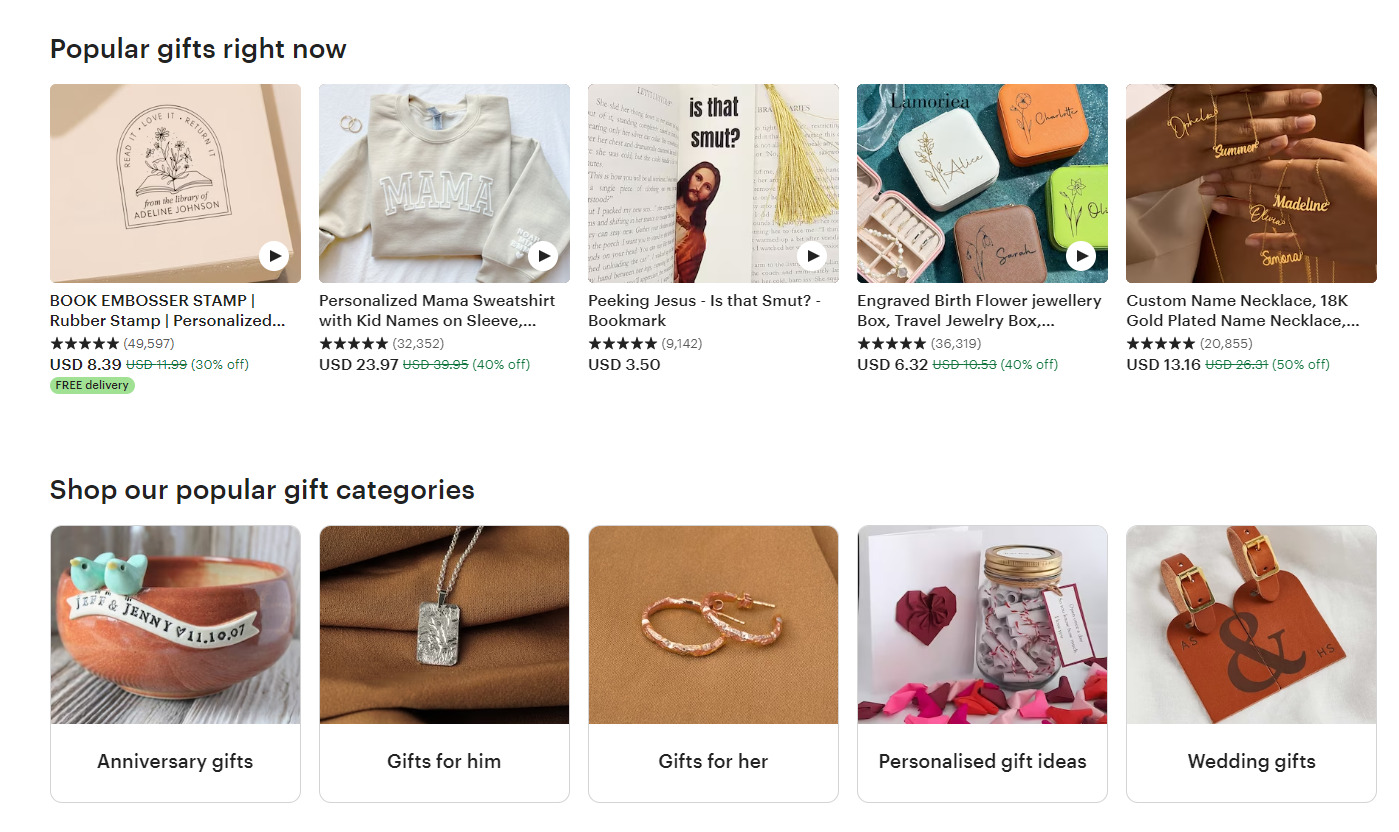
But there are millions of other sellers on the platform. So, you need to beat the competition by incorporating practices like optimizing your product description for the Etsy search engine.
Shopify vs. Etsy: Pros and Cons of Each Platform
Let’s identify the pros and cons of using either of these platforms for your e-commerce business.
Pros of Using Shopify
- Ease of use
- High level of customization
- Versatile payment options: Shopify Payments and other third-party payment gateways
- Design flexibility
- Round-the-clock customer support
- Hosting and security
- SEO support and e-commerce tools
Cons of Using Shopify
- Relatively higher pricing
- Lack of email hosting, although you can use third-party email hosting services
- Shopify Payments is only available in 23 countries
Pros of Etsy Marketplace for Your Business
- Lower upfront cost
- Easy to set up
- Collaborative community
- E-commerce tools and resources to assist sellers
Cons of Creating an Online Storefront on Etsy
- Tough competition
- Little to no control over your store design and layout
- Increasing transaction fees
Choosing the Right Platform for Your Business
We’ve presented the necessary information; it’s time to choose between the two platforms. Remember that deciding which is best for your business depends on your business goals. Here’s a brief overview of when to use Shopify or Etsy for your business.
When to Choose Shopify for Your Online Business
You might consider choosing Shopify for your online business if these apply to you:
- You anticipate significant growth or need a platform that can scale with your business
- You need extensive customization options to tailor your online store to your brand identity
- You want a platform with advanced marketing tools to attract customers
- You seek an e-commerce solution with reliable customer service
- You want detailed analytics to track your business growth
- You desire a platform that you can use for both your brick-and-mortar store (through Shopify POS) and online
Shopify is a versatile and powerful e-commerce platform suitable for businesses of all sizes and industries. It best suits those looking for scalability, customization, efficient support, and advanced marketing features.
When Etsy Makes Sense for Your Creative Products
Etsy might be the right choice for your creative products if:
- You specialize in handmade, unique, or vintage products
- You want to start your e-commerce business with little capital
- You want a marketplace with a built-in audience
- You need a platform that offers networking, collaboration, and support opportunities.
How Juphy AI Can Benefit Shopify Sellers
One of the goals of most businesses in today’s automation-driven world is to leverage technology to continuously increase sales without exerting much effort. This is where Juphy’s AI Agent, everyone’s reliable round-the-clock sales assistant with the ‘Built for Shopify’ badge swoops in.
If you’re still resting your customer support strengths solely on human efforts, you’re not helping your business. Your Shopify store should be set up to handle order requests, inquiries, and upselling opportunities at any point of the day. With Juphy AI, you can achieve this all directly within the Shopify dashboard.
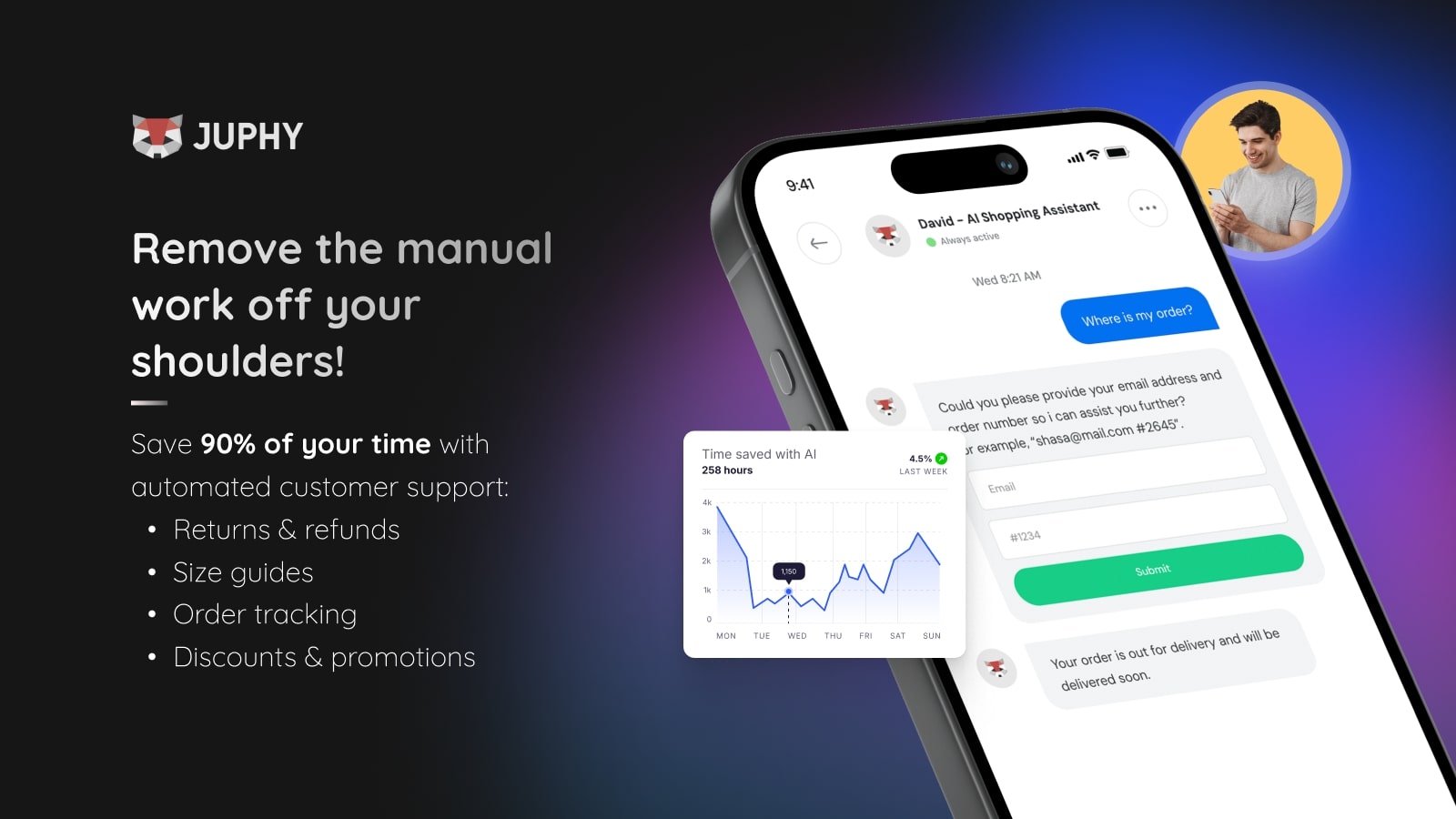
Say goodbye to situations where customers need help with a product recommendation when no human agent can assist.
Forget the days when customers had questions about your product but couldn’t find answers because they were shopping at midnight and your customer support staff were offline.
Juphy AI is a chatbot assistant that provides product recommendations to your customers, answers their questions, upsells and cross-sells products to increase your average order value, and handles much more while you and your staff take a break.
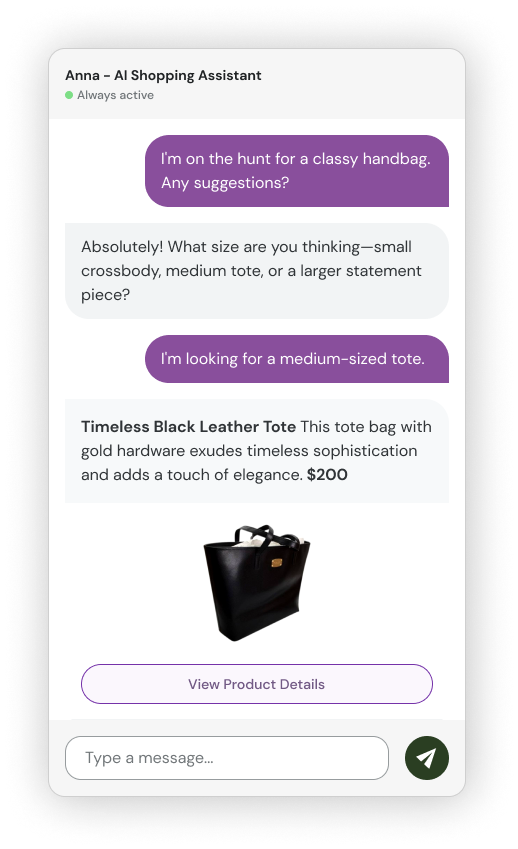
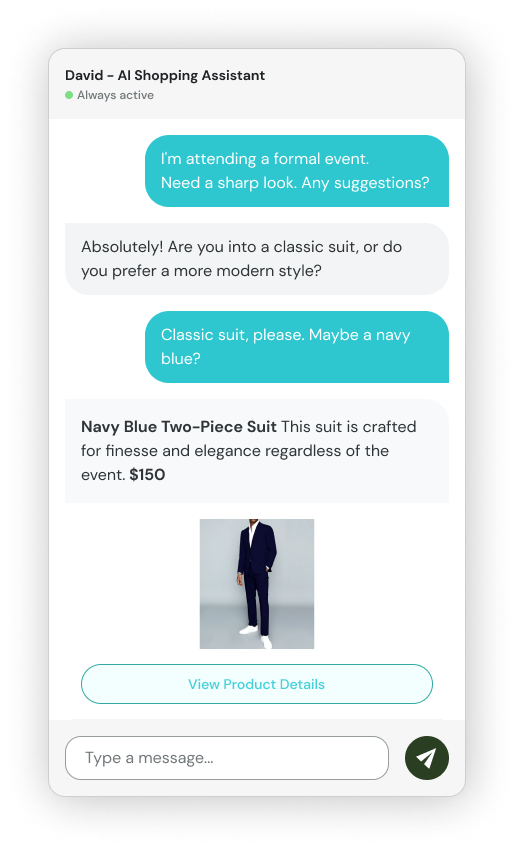
The tool is free to install on any Shopify plan and guarantees up to a 10x increase in sales and a 5x increase in revenue and conversions. You have nothing to lose; here’s a one-click free install for you and a free trial you shouldn’t miss.
Wrapping Up
As a final thought, we must stress again that there’s no magic formula to choosing the best option for your business, so you do not need to feel overloaded with choices. Here’s what to do instead:
Look in-depth at your business needs and goals, then the direction to follow will be clear.
Shopify empowers you to take charge of your online store and set it up how you like — you even get a custom domain name. Etsy brings you closer to the millions of shoppers looking to buy what you sell on their marketplace.
If you choose Shopify, a superhero AI assistant is waiting to help you skyrocket your sales in no time. Install the Juphy AI app on Shopify and set your business up to get the 10x increase your sales deserve!
Key Takeaways
- The best platform for your business depends on your business needs, products, goals, and resources.
- Shopify is an excellent website builder if you want a custom-built online store. Etsy is a marketplace for unique products with less customizable features.
- Shopify targets mostly entrepreneurs and businesses who want to build their online presence, and Etsy focuses on sellers and buyers with an audience.
- Shopify’s pricing incorporates recurring monthly fees, while Etsy charges fees for each transaction and listing each product.
- Choose Shopify if you’re looking for significant growth, advanced customization, and powerful tools for marketing.
- Choose Etsy if you want a low-cost platform to start your business that also comes with an in-built audience and community.

